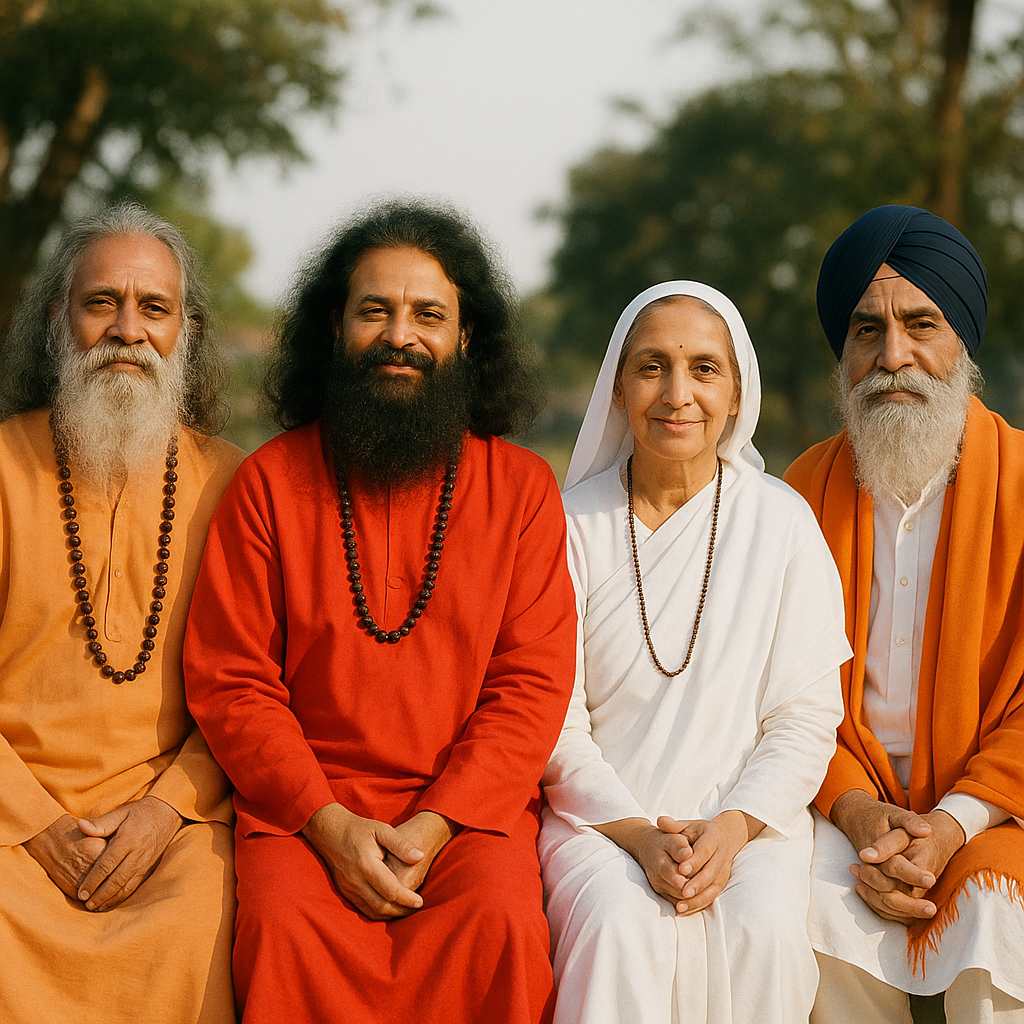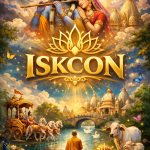Diaspora Faith Leadership: Indian-Origin Gurus, Saints & Spiritual Guides Abroad
Over the past century, Indian spirituality has traveled far beyond the borders of the subcontinent, finding homes in temples, yoga studios, meditation centers, and cultural organizations across the globe. From New York to Nairobi, London to Kuala Lumpur, Indian-origin spiritual leaders — gurus, saints, monks, and preachers — have emerged as key voices shaping how faith is practiced and perceived in multicultural societies. Their role extends beyond religion: they act as cultural ambassadors, moral educators, and emotional anchors for diaspora communities navigating the challenges of modern life abroad.
The Global Journey of Indian Spirituality
The roots of Indian diaspora faith leadership trace back to the late 19th and early 20th centuries, when reformers like Swami Vivekananda and Paramahansa Yogananda first introduced Hindu philosophy to Western audiences. Their message of universalism — “all religions are true” — resonated deeply in societies grappling with materialism and spiritual emptiness.
In later decades, the migration waves of the 1960s and 1970s brought new communities of Indians to Europe, North America, and Africa. Along with economic aspirations, they carried their faith — building temples, gurudwaras, and community centers. Over time, these spaces became hubs of not just worship but cultural preservation, offering language classes, festivals, and moral guidance for second-generation youth. The gurus and priests leading these institutions evolved into a new class of diaspora faith leaders — blending ancient tradition with modern sensibilities.
Gurus as Global Communicators
Unlike traditional priests confined to rituals, many Indian-origin spiritual leaders abroad have mastered the art of communication. They translate Sanskrit scriptures into English, deliver discourses through podcasts, and use YouTube to reach audiences far beyond physical congregations. Leaders such as Sadhguru Jaggi Vasudev, Sri Sri Ravi Shankar, and Swami Mukundananda attract massive global followings through their digital outreach.
Smaller yet equally influential leaders — Sikh granthis in Canada, Jain monks in the UK, or Hindu scholars in the U.S. — play vital roles in shaping local spiritual ecosystems. Their ability to blend devotion with dialogue, and tradition with tolerance, allows them to connect with multicultural audiences that include not only Indian expatriates but also curious seekers from other faiths.
This communicative approach marks a shift from exclusivity to inclusivity. Diaspora faith leadership is less about conversion and more about conversation — engaging the world through ideas like mindfulness, seva (service), and compassion, which resonate across cultures.
Faith Leadership and Cultural Identity
For the Indian diaspora, religion is often intertwined with identity. Temples and spiritual centers abroad are not just places of prayer — they are repositories of cultural memory. Festivals like Diwali, Holi, or Guru Nanak Jayanti become symbols of continuity for children growing up in foreign lands.
Diaspora faith leaders play a crucial role in nurturing this identity. They teach Sanskrit shlokas alongside lessons on self-discipline and respect for diversity. They counsel families facing generational conflicts and guide youth who struggle to reconcile traditional values with Western lifestyles. Their sermons often mix philosophy with practical advice — how to handle peer pressure, manage stress, or maintain cultural pride without isolation.
In this sense, the diaspora guru becomes part spiritual guide, part social worker, and part community organizer — preserving heritage while helping followers adapt to modern realities.
Interfaith and Social Engagement
One of the defining features of Indian-origin faith leadership abroad is its openness to interfaith collaboration. In countries like the United Kingdom, Canada, and the United States, Hindu, Sikh, Jain, and Buddhist organizations frequently participate in inter-religious dialogues on peace, environment, and social justice.
Sikh leaders, for instance, have earned respect worldwide for community kitchens (langars) that serve people of all backgrounds — a living example of inclusivity in action. Similarly, Hindu temples often host charity events, blood donation drives, and cultural exhibitions, projecting an image of spirituality that is active and socially engaged.
Many diaspora gurus have also entered the public sphere, offering perspectives on ethics in business, mental health, and sustainable living. This engagement positions them as moral voices in secular societies hungry for meaning beyond consumerism.
Challenges of Diaspora Spirituality
However, diaspora faith leadership is not without challenges. Some critics question the commercialization of spirituality through global events, retreats, or branded merchandise. Maintaining authenticity in the face of popularity is a delicate balance. Moreover, younger generations often drift away from organized religion, preferring personal spirituality or digital connection over temple attendance.
Leaders must therefore adapt to new forms of engagement — offering hybrid online-offline spiritual models, inclusive dialogues, and culturally relevant teachings. Another challenge lies in navigating political neutrality. In a world where religion often intersects with nationalism, diaspora leaders must ensure their message remains unifying, not divisive.
The Future: A Global Dharma
The rise of Indian-origin spiritual leaders abroad signals not just the globalization of Indian faiths but the emergence of a global dharma — a philosophy that transcends geography. The essence of this dharma lies in harmony: between tradition and innovation, devotion and dialogue, local community and universal compassion.
Future leaders are likely to be multilingual, tech-savvy, and socially conscious — monks who tweet, saints who host podcasts, and priests who engage in climate activism. They will carry India’s spiritual heritage not as a relic of the past but as a living, evolving force capable of addressing modern anxieties and ethical dilemmas.
Indian-origin gurus and saints abroad have redefined what it means to lead a spiritual life in a globalized world. They are bridging continents and cultures, offering the diaspora — and indeed all humanity — a model of faith rooted in timeless wisdom yet responsive to contemporary realities. Their message remains simple yet profound: wherever one goes, spirituality is not about place, but about presence — a light carried within, guiding individuals and communities toward unity, peace, and purpose.
~Religion World Bureau









